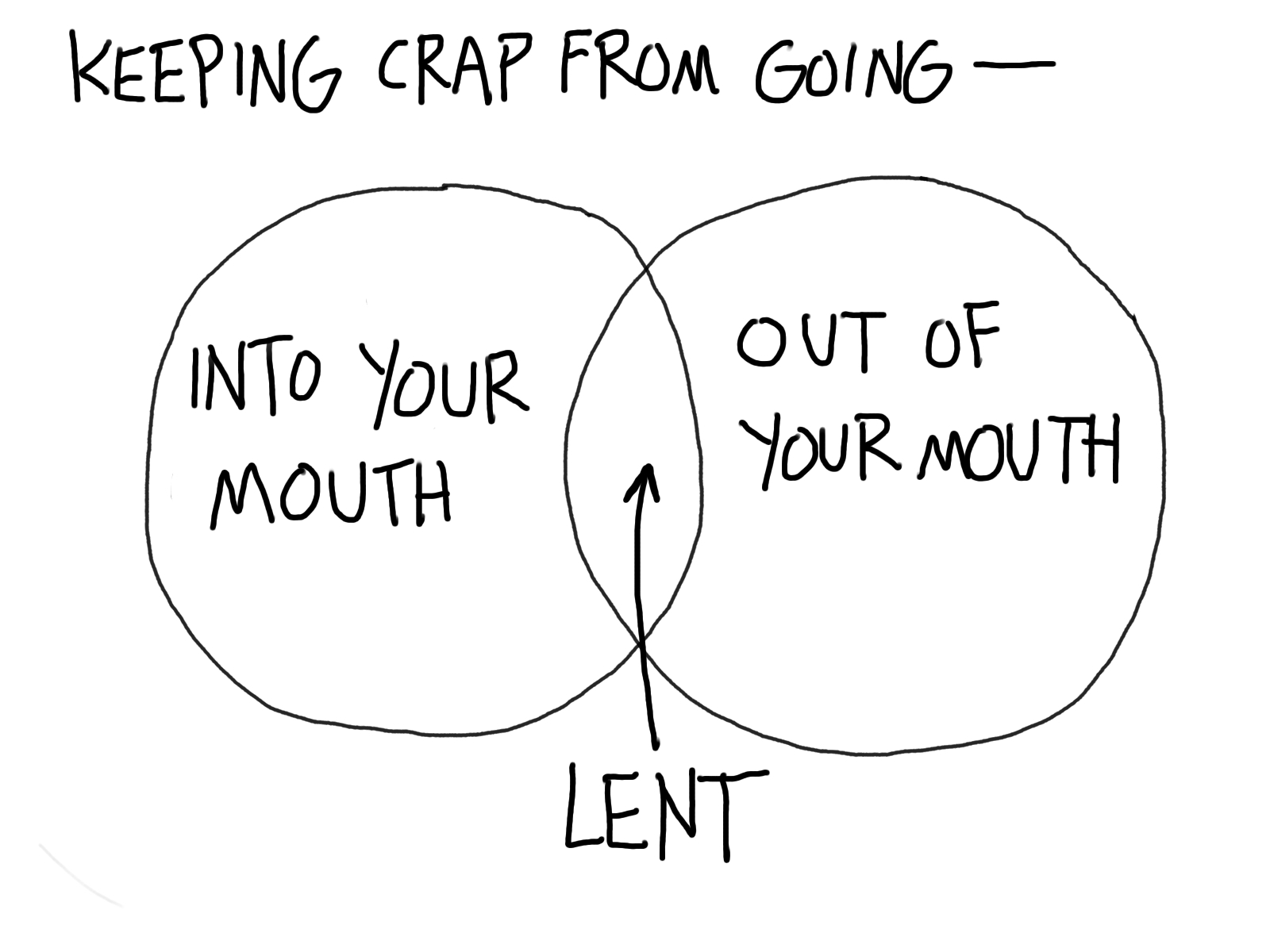By: Fr. Stephen Freeman Source:
https://blogs.ancientfaith.com
Few things are as difficult in
the modern world as fasting. It is not simply the action of changing our eating
habits that we find problematic – it’s the whole concept of fasting and
what it truly entails. It comes from another world.
We understand dieting –
changing how we eat in order to improve how we look or how we feel. But changing
how we eat in order to know God or to rightly keep a feast of the Church – this
is foreign. Our first question is often, “How does that work?” For we live in a
culture of utility – we want to know the use of things. Underneath
the question of utility is the demand that something make sense to me, and that
I be able to ultimately take charge of it, use it as I see fit and shape it
according to my own desires. Perhaps the fast could be improved?
Our modern self-understanding
sees people primarily as individual centers of choice and decision. A person is
seen as the product of their choices and decisions – our lives are
self-authenticated. As such, we are managers.
Of course there are many
problems with this world-view from the perspective of Classical Christianity.
Though we are free to make choices and decisions, our freedom is not unlimited.
The largest part of our lives is not self-determined. Much of the rhetoric of
modernity is aimed towards those with wealth and power. It privileges their
stories and mocks the weakness of those without power with promises that are
rarely, if ever, fulfilled.
Our lives are a gift from God
and not of our own making. The Classical Christian spiritual life is not marked
by choice and self-determination: it is characterized by self-emptying and the
way of the Cross.
When a modern Christian
confronts the season of Lent – the question often becomes: “What do I want to
give up for Lent?” The intention is good, but the question is wrong. Lent
quickly becomes yet another life-choice, a consumer’s fast.
The practice of the traditional
fast has been greatly diminished over the past few centuries. The Catholic
Church has modified its requirements and streamlined Lenten fasting (today it
includes only abstaining from meat on the Fridays of Lent – which makes them
similar to all the other Fridays of the year). The Protestant Churches that
observe the season of Lent offer no formal guidelines for Lenten practice. The
individual is left on their own.
Orthodoxy continues to have in
place the full traditional fast, which is frequently modified in its application
(the “rules” themselves are generally recognized as written for monastics). It
is essentially a vegan diet (no meat, fish, wine, dairy). Some limit the number
of meals and their manner of cooking. Of course, having the fast in place and
“keeping the fast” are two very different things. I know of no study on how
Orthodox in the modern world actually fast. My pastoral experience tells me that
people generally make a good effort.
Does any of this matter? Why
should Christians in the modern world concern themselves with a traditional
practice?
What is at stake in the modern
world is our humanity. The notion that we are self-authenticating individuals is
simply false. We obviously do not bring ourselves in existence – it is a gift.
And the larger part of what constitutes our lives is simply a given – a gift. It
is not always a gift that someone is happy with – they would like themselves to
be other than they are. But the myth of the modern world is that we, in fact, do
create ourselves and our lives – our identities are imagined to be of our own
making. We are only who we choose to be. It is a myth that is extremely
well-suited for undergirding a culture built on consumption. Identity can be had
at a price. The wealthy have a far greater range of identities available to them
– the poor are largely stuck with being who they really are.
But the only truly authentic
human life is the one we receive as a gift from God. The spirituality of choice
and consumption under the guise of freedom is an emptiness. The identity we
create is an ephemera, a product of imagination and the market. The habits of
the marketplace serve to enslave us – Lent is a call to freedom.
A Modern Lent
Thus, a beginning for a modern
Lent is to repent from the modern world itself. By this, I mean renouncing the
notion that you are a self-generated, self-authenticating individual. You are not
defined by your choices and decisions, much less by your career and your
shopping. You begin by acknowledging that God alone is Lord (and you are not).
Your life has meaning and purpose only in relation to God. The most
fundamental practice of such God-centered living is the giving of thanks.
Renounce trying to improve
yourself and become something. You are not a work in progress. If you are a work
– then you are God’s work. “For we are His workmanship, created in Christ Jesus
for good works, which God prepared beforehand that we should walk in” (Eph
2:10).
Do not plan to have a “good
Lent” or imagine what a “good Lent” would be. Give up judging – especially
judging yourself. Get out of the center of your world. Lent is not about you. It
is about Christ and His Pascha.
Fast according to the Tradition
instead of according to your own ideas and designs. This might be hard for some
if they are not part of the traditional Church and thus have no fasting
tradition. Most Catholics have differing rules for fasting than the Orthodox. If
you’re Catholic, fast like a Catholic. Don’t admire other people’s fasting.
If you’re Protestant but would
like to live more traditionally, think about becoming Orthodox. Short of that,
covenant with others (family, friends) to keep the traditional fast. Don’t be
too strict or too lenient, and if possible keep the fast in a manner that is
mutually agreed rather than privately designed. Be accountable but not guilty.
Pray. Fasting without praying
is called “the Fast of Demons,” because demons never eat, but they never pray.
We fast as a means of drawing closer to God. Your fasting and your prayer should
be balanced as much as possible. If you fast in a strict manner, then you should
pray for extended periods. If you fast lightly, then your prayers may be lighter
as well. The point is to be single – for prayer and fasting to be a single thing.
To our prayer and fasting
should be added mercy (giving stuff away, especially money). You cannot be too
generous. Your mercy should be as invisible as possible to others, except in
your kindness to all. Spend less, give away more.
Eating, drinking, praying and
generosity are very natural activities. Look at your life. How natural is your
eating? Is your diet driven by manufactured, processed foods (especially as
served in restaurants and fast food places)? These can be very inhuman ways
of eating. Eating should take time. It is not a waste of time to spend as
much as six hours in twenty-four preparing, sharing, eating and cleaning up.
Even animals take time to eat.
Go to Church a lot more (if
your Church has additional Lenten services, go to them). This can be problematic
for Protestants, in that most Protestant worship is quite modern, i.e. focused
on the individual rather than directed to God, well-meant but antithetical to
worship. If your Church isn’t boring, it’s probably modern. This is not to say
that Classical Christianity is inherently boring – it’s just experienced as such
by people trained to be consumers. Classical Christianity worships according to
Tradition and focuses its attention on God. It is not there for you to “get
something out of it.”
Entertain yourself less. In
traditional Orthodox lands, amusements are often given up during the Lenten
period. This can be very difficult for modern people in that we live to consume
and are thus caught in a cycle of pain and pleasure. Normal pleasures such as
exercise or walking are not what I have in mind – although it strikes me as
altogether modern that there should be businesses dedicated to helping us do
something normal (like walking or exercising), such that even our normal
activities become a commodity to consume.
Fast from watching/reading the
news and having/expressing opinions. The news is not presented in order to keep
you informed. It is often inaccurate and serves the primary purpose of political
propaganda and consumer frenzy. Neither are good for the soul. Opinions are
deeply destructive to the soul’s health. Opinions are not properly considered,
necessary beliefs. They are passions that pass themselves off as thoughts
or beliefs. The need to express them reveals their passionate nature.I could well imagine that a
modern person, reading through such a list, might feel overwhelmed and wonder
what is left. What is left is being human. That so much in our lives is
not particularly human but an ephemeral distraction goes far to explain much of
our exhaustion and anxiety. There is no food for us in what is not human.
And so the words of Isaiah come
to mind:
Ho! Everyone who thirsts, Come
to the waters; And you who have no money, Come, buy and eat. Yes, come, buy wine
and milk Without money and without price. Why do you spend money for what is not
bread, And your wages for what does not satisfy? Listen carefully to Me, and eat
what is good, And let your soul delight itself in fatness (Isa 55:1-2).
“Let your soul delight itself
in fatness…” the irony of Lent.
*************************************



|




